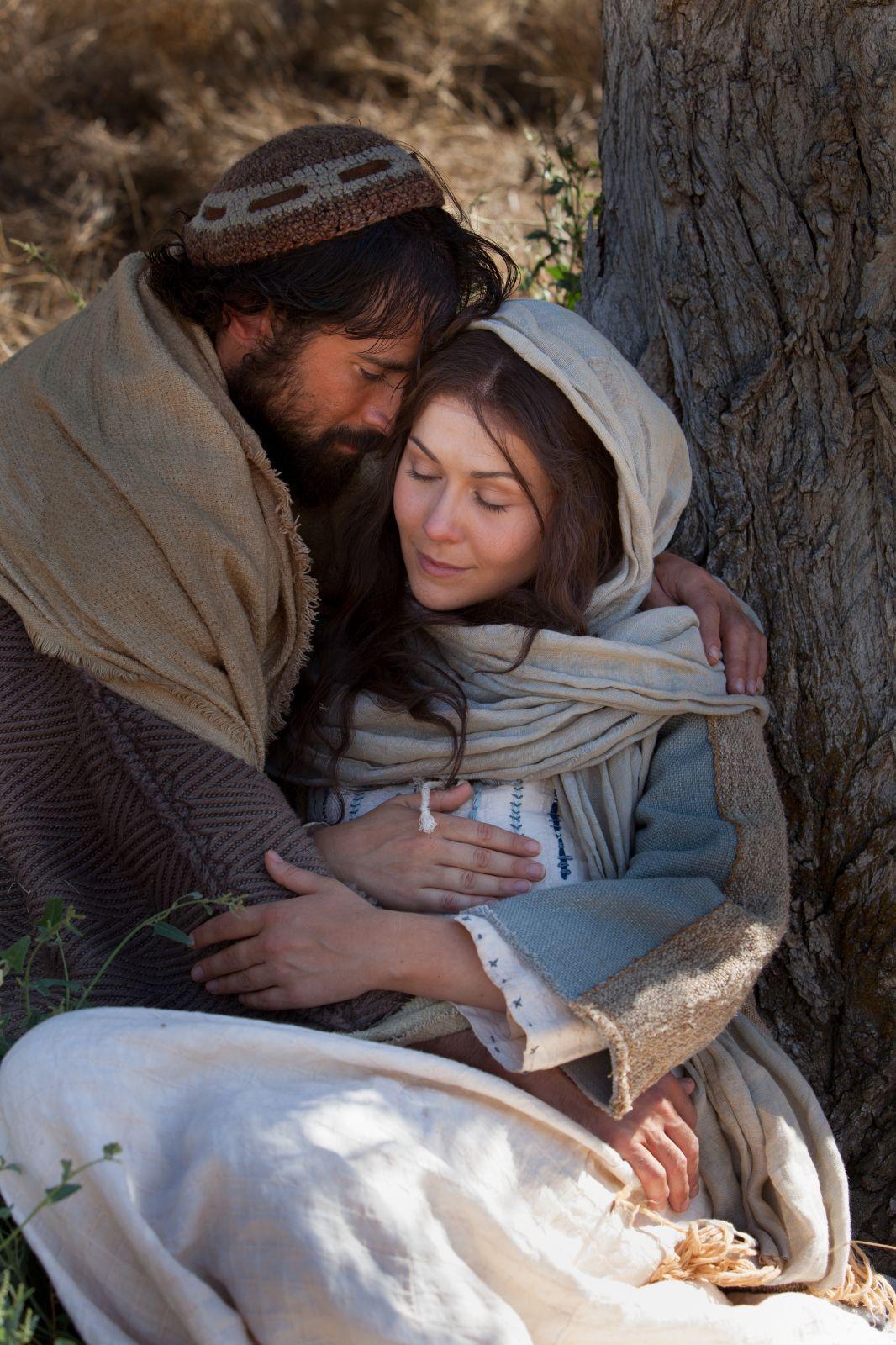Background Passages: Amos 7:7-9; Isaiah 28:16-17; Matthew 5:1-12
I have a vague recollection of my Dad building some kind of shed near the barn on our farm. The extent of my help on the project was dragging a 2 x 4 from a nearby pile, handing him a few nails, and picking up the hammer he dropped.
What I do have a memory of is watching him determine that the walls were absolutely vertical by using a plumb line.
A builder might use a plumb line as an alternative to a level to find a straight vertical line. In simplest form, a plumb line consists of a piece of string with a weight called a bob at the bottom.
When you hang the line downward, the weight, with an assist from gravity, pulls the string taut and creates a straight, vertical line. Measure your wall against that line and, if it’s equal top to bottom, your wall is plumb.
We know the ancient Egyptians used plumb lines thousands of years ago. I suspect they were used by others long before the Egyptians.
The prophet Amos, a sheepherder and farmer of figs from Tekoa, would have known how to use a plumb line. It’s natural that God would use a plumb line to reveal an important truth to his prophet.
Amos told the people of Israel that they were headed in the wrong direction. He said they “sold the righteous for silver and the poor a pair of sandals.” (Amos 2:6)
God was pronouncing judgment against Israel for its continued rebelliousness as they failed to live up to his standards and had failed to repent and return to God.
Twice as God declared his intent to punish his people, Amos begged him to relent. God then spoke to Amos a third time.
This is what he showed me. The Lord was standing by a wall that had been built true to plumb, with a plumb line in his hand. And the Lord asked me, “What do you see, Amos?”
“A plumb line,” I replied.
Then the Lord replied, “I am setting a plumb line against my people Israel. I will spare them no longer. The high places of Isaac will be destroyed, and the sanctuaries of Israel will be ruined. With my sword I will rise against the house of Jeroboam.” (Amos 7:7-9)
It’s not my intent to talk about the prophecies of Amos and how God followed through on his punishment. This passage intrigued me in what it says about God’s plumb line.
“I am setting a plumb line against my people Israel.”
I think it serves as a great reminder for us to make sure we measure up to God’s standard.
Rodney Johnson, pastor of New Light Christian Church in Kansas City, called God’s plumb line the standard by which God measures our faithfulness; our righteousness.
He said, “The kinds of instruments we use to measure our life will often determine what we uncover and how we face life in general.
“When we begin to examine our plumb lines, if they are faulty – based on the world’s standard of right and wrong – our assessments of where we are will be faulty. When our assessments are off – when they are different from God’s assessments – we cannot course correct to mirror our plumb lines to God’s.”
Years ago, I built a four-foot brick wall to shield my pool equipment from the pool. I used a plumb line. It only took a few rows of bricks to see that something was off. When I looked closer, the bob at the end of the plumb line was just barely resting on the ground. I was basing the uprightness of my wall on a faulty plumb line.
I think this is what Johnson was talking about. We too often measure our righteousness, our uprightness, if you will, by a faulty standard…parental expectations, cultural morality, friendships, legal requirements. In every one of those situations, the plumb bob is touching the ground, skewing the standard. Until and unless we use God’s plumb line, we will never measure up.
So, what’s the plumb line? What’s the standard?
In his prophetic message, Isaiah gave us a hint.
So this is what the Sovereign Lord says:
“See, I lay a stone in Zion, a tested stone, a precious cornerstone for a sure foundation; one that relies on it will never be stricken with panic.” (Isaiah 28:16)
“A tested stone,” one already measured against God’s plumb line, will become the “cornerstone for a sure foundation,” level and plumb. Isaiah is talking about the coming Messiah…Jesus Christ.
You see, if we’re trying to live by God’s standard, his plumb line, then we have to be able to see it. God revealed his plumb line through Jesus and through his word. To see Jesus as he lived, to hear God’s word as he preached and taught, to be able now to listen to the voice of God through the words of the Bible…that’s the plumb line against which our lives are measured.
Isaiah continues with the illustration.
I will make justice the measuring line and righteousness the plumb line…” (Isaiah 28:17)
Righteousness can be defined as “living in right relationship with God” or living “upright and obedient lives.” Letting our words and our deeds measure up to God’s plumb or standard.
It is a theme that runs throughout the New Testament. Paul told the Ephesians, “Therefore, be imitators of God, as beloved children; and walk in love, just as Christ also loved you and gave himself up for us… (Ephesians 5:1-2)
We live up to God’s standard when we imitate the life of Christ and walk in love for one another.
John’s first letter declares the same. “This is how we know we are in him: Whoever claims to live in him must live as Jesus did.” (I John 2:6)
The life of Jesus, his faithful obedience, his servant’s heart, make him the perfect plumb line against which we can test our own lives. We should strive to be like him.
“To this you were called, because Christ suffered for you, leaving you an example, that you should follow in his steps.” (I Peter 2:21)
Clearly Jesus is the standard for even Peter asks us to emulate Jesus as our perfect example of how to live our lives.
Jesus is not the only way God tests us against his plumb line. He uses his word to assess how well we are following his commands.
Look at 2 Timothy 3:16-17. It says,
“All scripture is given by inspiration of God, and is profitable for doctrine, for reproof, for correction, for instruction in righteousness. That the man of God may be perfect, thoroughly furnished unto all good works.”
It is his word that tells us how we are to live our lives as his hands and feet in ministry.
You don’t need to read a lot of scripture to find this truth. It is there, at the turn of every page, a guide to tell us how to live, how to be measured against God’s standard and not found to be out of plumb.
It sounds so easy. Walk in Jesus’ footsteps. Live in his image. Read the Bible. One of my favorite authors explained this in his book God’s Mirror Image:
“To live in the image of God seems to be such a deep theological concept. Yet, the promise of Jesus resonates in its simplicity. “If you have seen me, you have seen the Father.”
Once we get past the wonder of Emmanuel, “God with us,” and embrace the character and teachings of Christ, we can see exactly how we are to exist as God’s reflected image in the world. We mirror the image of God by imitating the character of Christ.”
What is the character of Christ? Look no further than the Beatitudes in Matthew 5. Look at this passage and then think about the life of Christ. He modeled every character trait described in those verses in his daily walk.
Every instance of Jesus’ life and ministry on earth recorded in the Bible is a blueprint on how we should live our lives. It’s up to us to live as he lived.
Here’s my thought. God has a plumb line and his message to Israel long ago and to us today is that he uses it as his standard to measure our faithfulness, our obedience and our righteousness.
God knows his will for us, where he wants us to be and how we should get there. The standard modeled in the life of Jesus and reflected in God’s word tells him if we’re in plumb. If not, his plumb line shows us how far we must go to get back on track.
When I read that passage this week, I had to think about that plumb line in my life. I had to make sure the plumb line I was using was not something other than the life of Jesus and God’s word.
If I’m honest, my plumb bob has been dragging the ground a bit and the what I’m trying to build of my life has been a little off vertical.
Let me go back to what the Rev. Johnson wrote. “When we begin to examine our plumb lines, if they are faulty – based on the world’s standard of right and wrong – our assessments of where we are will be faulty. When our assessments are off – when they are different from God’s assessments – we cannot course correct to mirror our plumb lines to God’s.”
I discovered I need a course correction. I need to make sure God’s plumb line is unobstructed, free to show me where I don’t measure up to his standard. In those areas of my life where I am off, I need to get back into proper alignment with his will and way for my life. That’s my commitment this week.
How about you? When’s the last time you checked the plumb line in your life? How well do you measure up to God’s standard?
It feels like a question all of us should ask every day.




